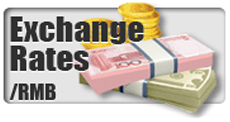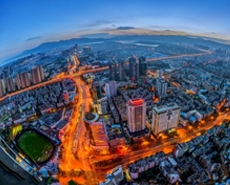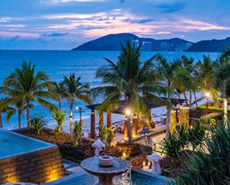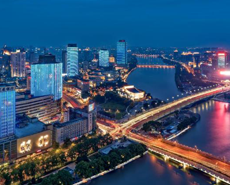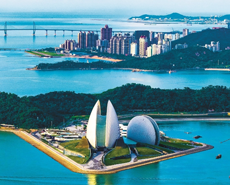
Thai steel market unlikely to recover after the General Election
----Interview with Ekasit Anukoolprasert
General Manager
Siam Five Steel 1995 Co., Ltd.
General Manager
Siam Five Steel 1995 Co., Ltd.
Founded in 1995, Siam Five Steel 1995 Co., Ltd. is one of the major steel trading companies in Thailand, dealing with kinds of finished steel such as HRC, steel plate and steel pipe. The company has built long-term cooperation with several state-owned and famous enterprises after more than 20 years' development.
Asian Metal: Good afternoon, Mr. Anukoolprasert. Thanks a lot for agreeing to the interview. Please could you briefly tell us about your company?
Ekasit Anukoolprasert: Siam Five Steel 1995 Co., Ltd. has been involved in steel trading business for more than 20 years. We provide high quality steels for construction projects, oil refinery industry, fabrication factory and so on. We mainly deal with HRC, steel plate and steel pipe. By adhering to the "Consumer first, reputation first" business philosophy, we have earned a favorable reputation in the steel industry.


Asian Metal: What's your biggest challenge at present? What about your advantages?
Ekasit Anukoolprasert: With the recession of the macro economy, all the entity performs slowly in Thailand for the moment, so the steel business is hard to run. Besides, to avoid potential risks, banks have tightened loans to steel enterprises in recent two or three years, and the capital flow is slow.
However, as a long-established company, we focus on entity and refuse to make extra investments in other fields, which enable us to concentrate the capital to where it is most needed. In the meantime, we are seeking opportunities and striving for broader development space at the moment.
Asian Metal: What about HRC production in Thailand last year? Do you think the situation will change after the General Election?
Ekasit Anukoolprasert: There are altogether three HRC producers in Thailand. However, two of them produced intermittently due to capital shortage in the whole year of 2018, and only one mill produced continuously, with the monthly output of about 40,000t, which meant the supply was tight. Currently there are two mills under normal production.
Even facing tight supply, prices for HRC were powerless to go up and even witnessed a markdown of approximately 5% YOY in 2018 dragged by the insufficient demand from downstream industries.
Actually, HRC mills in Thailand face high production costs, which restrain them from producing normally to some degree. Firstly, the steel raw material supply is insufficient in the domestic market and relies much on imports. Secondly, the production technology of enterprises is relatively backward, leading to unreasonable production structure. Thirdly, the backwardness of Thai machinery industry forces steel producers to import equipments with higher prices.
Currently we adopt wait-and-see attitudes towards the market prospect, and we do not think the market performance could make long-term improvement after the General Election in late March. It is said that Thailand will form a multi-party coalition government after the General Election.


Asian Metal: I heard that the automobile production capacity in Thailand will reach 3 million units before 2020, so how about the current downstream demand for HRC in Thailand?
Ekasit Anukoolprasert: Personally, I'm not so optimistic towards the downstream demand this year. It's well known that the economy in Thailand has been sluggish since the flood in 2011, with more and more foreign companies retreating from the country.
Meanwhile, although politics has tended to stabilize in recent years, investment from foreigners hasn't improved much due to rising operating costs.
In addition, the new energy vehicles (NEVs) has become a worldwide trend, but as far as I learnt, most automobile producers in Thailand lack relevant technology and will surely restrain the demand for flat steel in the future.
Asian Metal: Do you rely much on imported materials? Where do you mainly import from?
Ekasit Anukoolprasert: We do not import materials now, but we consider starting relevant business if there are reliable suppliers in other countries. Therefore, we pay much attention to market situations such as China, Russia, Turkey, Ukraine and so on as most steel raw materials of Thailand are imported.

